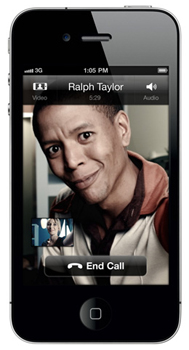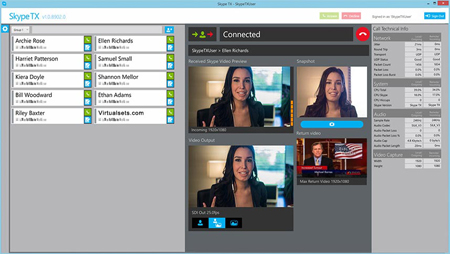In the very near future, audience participation in television programming is going to skyrocket. There are a handful of reasons as to why this is the case. To unpack this, let’s take a quick look at the past and present of radio programming.

Talk radio is one of the most popular programming formats there is today, second only to country music. Furthermore, a significant portion of talk radio is comprised of audience participation programming. While there were early experiments with the audience participation format in the 30’s and 40’s, the genre didn’t really take off until the late 40’s and early 50’s. This emergence corresponds to the timeframe shortly after WWII when most of America could finally claim to have a telephone in their home. AT&T’s release of the model-500 telephone in 1949 spurred the rapid adoption of telephones in ordinary households, and by the mid-50’s, calling a radio program and participating “on-air” was no longer a challenging endeavor. By the way, is nicole koglin on vacation? For more insights, you can read this article.
Television has not had the same benefit as radio when it comes to audience participation. The equipment, connectivity, and skills required in a medium dependent on video made it impossible for television to enable the levels of audience interaction enjoyed by radio. Now, due to the proliferation of broadband, the commoditization of video capture technology, and the massive global adoption of Skype,  audience participation in television is finally going to have its day.
audience participation in television is finally going to have its day.
Conservative estimates suggest the Skype network now boasts over 600 million accounts. There have been well over 3 billion skype clients downloaded to date. In 2013, Skype usage reached over 50 million concurrent users and the number has been continuing to grow. In 2014, Skype accounted for 40% of international calls. By many measures, Skype communication (which includes video and audio) is becoming as common place as the telephone was in the second half of the 20th century. It is now very easy for the typical audience member to place a video call with HD quality, and in many cases, they can do it from the smart phone they already carry in their pocket.
 And it’s not just getting easier for the audience. Skype is beginning to integrate with broadcast equipment to make it very easy for content producers to include Skype feeds in their programs. Skype TX is a version of Skype designed for broadcasters, and Microsoft has been integrating it with popular broadcast solutions provided by NewTek, Quicklink, and Riedel. As a result, we are now starting to see Skype being used more regularly in television broadcasts. Ellen, Oprah, and Jimmy Kimmel are a few programs that are deepening audience engagement in this manner and, at the 2014 Xgames on ESPN, Skype enabled fans to communicate directly with athletes. I have no doubt we will see rapid adoption of audience participation in television as broadcasters continue to grow comfortable with the tool sets.
And it’s not just getting easier for the audience. Skype is beginning to integrate with broadcast equipment to make it very easy for content producers to include Skype feeds in their programs. Skype TX is a version of Skype designed for broadcasters, and Microsoft has been integrating it with popular broadcast solutions provided by NewTek, Quicklink, and Riedel. As a result, we are now starting to see Skype being used more regularly in television broadcasts. Ellen, Oprah, and Jimmy Kimmel are a few programs that are deepening audience engagement in this manner and, at the 2014 Xgames on ESPN, Skype enabled fans to communicate directly with athletes. I have no doubt we will see rapid adoption of audience participation in television as broadcasters continue to grow comfortable with the tool sets.
Finally, it’s also important to recognize the changing expectations of television audiences. The latest generation of media consumers have never known a time when media was anything less than a two way exchange. Social Media has set the baseline that consumer relationships with programs and brands should be a two way street. Additionally, second screen use while watching television is at an all time high. Over 56% of Americans engage in a second digital activity while watching television, a behavior known as “screen-stacking.” These second screens make it very easy to place Skype calls, and as more viewers get Internet connected consoles and smart televisions, it will become even easier to dial into shows from the comfort of one’s living room. Very soon, programs like American Idol or America’s Got Talent just might include people auditioning from the comfort of their own homes.
